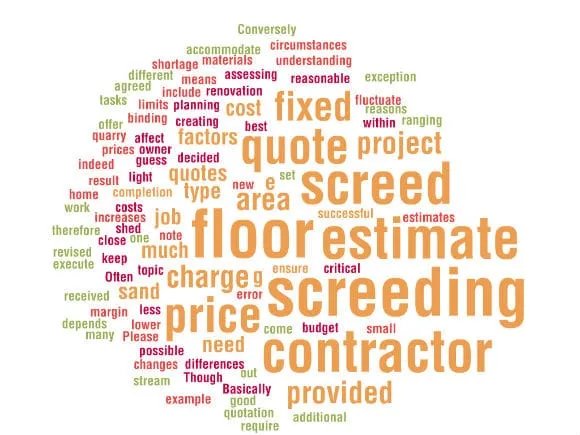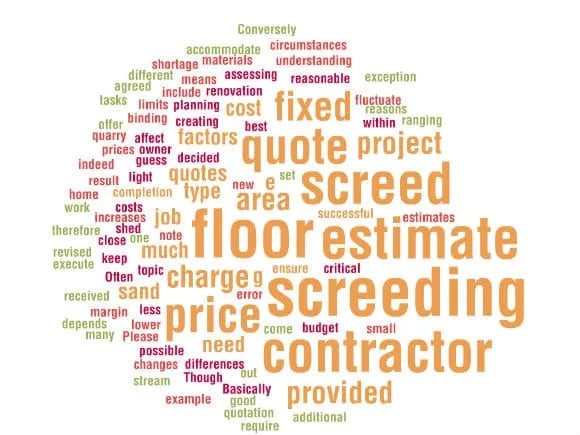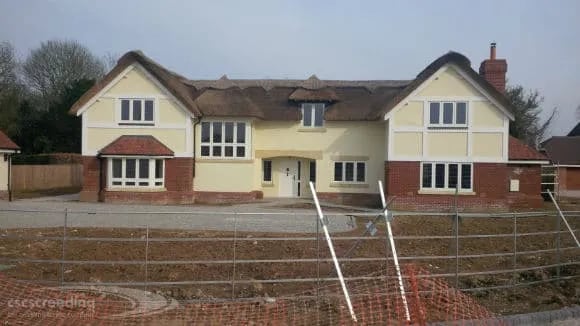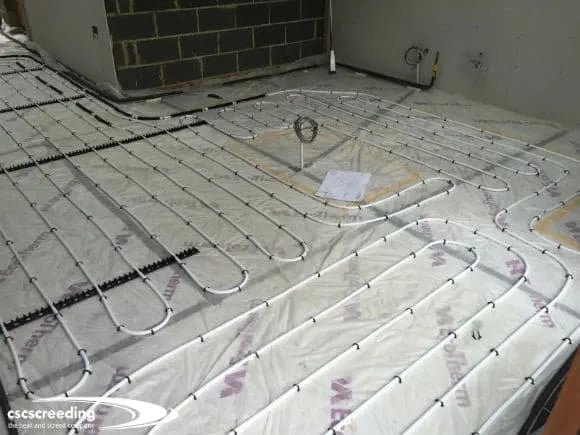
The Difference Between a Quote and an Estimate
The Difference Between a Quote and an Estimate

All the things that need to be considered for estimates and quotes
“I’ve been living in this old house for 10 years. Recently, I’ve decided to replace the 115 year-old solid oak wood floor. I would also like to install floor screed to level and strengthen the substrate. Can you tell me how much it costs to screed my floor? ”
This is one of the questions we received from a home owner planning a floor renovation project. Since understanding the differences between an estimate and a quote and assessing the factors that affect screeding costs before creating your budget is critical to ensure successful project completion, we have decided to shed some light on this topic.

Quality floors for quality properties
An estimate is the best guess as to how much a job may cost. Basically, this means that a floor screeding contractor can charge you more or less than the estimate provided. Though an estimate is not binding, the contractor should keep the price within reasonable limits, as close as possible to the estimate provided. Often, estimates are lower than quotes. That is because quotes include a small margin of error to accommodate potential price increases that may result from changes in circumstances. Please note that prices for materials can fluctuate, for example sand can be in shortage in an area or indeed a new quarry might come on stream and therefore these are good reasons why an estimate might need to be revised.
Conversely, a quotation is a fixed price offer and should set out all the work the contractor agrees to do for that price. The contractor cannot charge you more than the agreed price, the only exception being when you require him to execute additional tasks.

A screeding job depends on many different factors, ranging from the size of the area, type of screed (e.g. traditional cement-sand screed, fast-drying, free-flowing, or floor-levelling compounds), thickness of the screed layer, project complexity and labour involved to access to the screed plant, distance the workers, vans and truck mixers have to travel, and the difficulties encountered during the development (e.g. departure from datum, problematic substrates, etc.).
For a fixed quote, a screeder should inspect the area in need of screeding and get all the details mentioned above. Why is getting a fixed quote from your screeding contractor so important? Besides giving you the assurance that the contractor cannot charge you more than the quote provided, a fixed quote allows you to know exactly how much you will pay before signing on the dotted line.
Undoubtedly, screeding a floor can be expensive. However, floor screeding should not be seen as an expense but an investment. When the right type of screed is installed according to specifications, it will make your floor look flat, smooth, beautiful and last considerably longer. Using screed to help prevent early floor failure translates into significant cost savings over time.

Power floating screed for a smooth finish
If you wonder why you should choose our HomeScreed team, we invite you to review our market comparison checklist to see the differences between our services and those of our competitors. For a solid, durable floor unlikely to cause unforeseen problems, you can get in touch with our screeding team at 0845-500-4055 or fill in our online form. Our professionals will get back to you with a free, no-obligation quote and any other details you may require for your screeding project.
